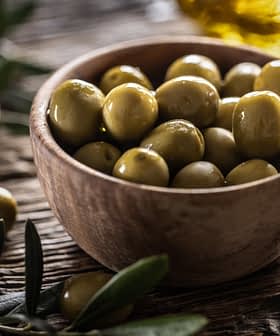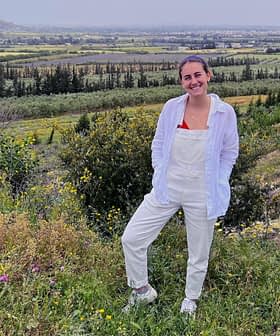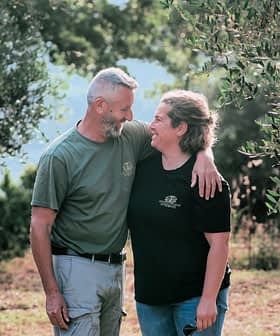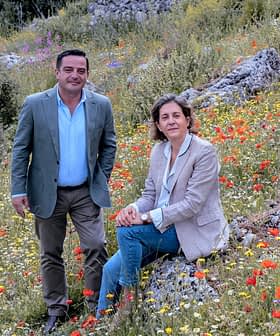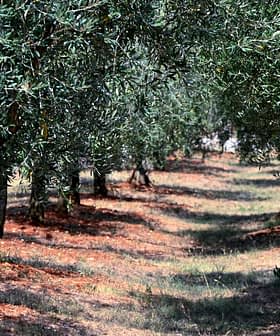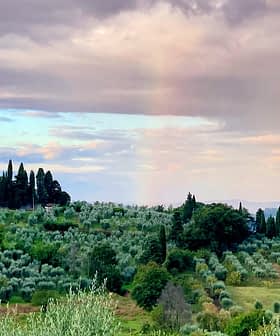Sicilian and Sardinian Growers Triumph in World Competition
The judges acknowledged the results of a growing organic approach and an established know-how from producers on Italy’s two largest islands.
 Antonello and Alessandro Fois with their late father Giuseppe
Antonello and Alessandro Fois with their late father Giuseppe The 2022 NYIOOC World Olive Oil Competition awarded numerous Gold and Silver Awards to olive oil producers in Sicily and Sardinia, recognizing their unique location, climate, and traditions. Producers like Bona Furtuna and Vincenzo Signorelli Olivicoltore in Sicily and Accademia Olearia in Sardinia received awards for their high-quality olive oils, showcasing the biodiversity and dedication to preserving ancient olive varieties on the Mediterranean islands.
Part of our continuing special coverage of the 2022 NYIOOC World Olive Oil Competition.
Dozens of Gold and Silver Awards from the 2022 NYIOOC World Olive Oil Competition have gone to olive oil producers on the Mediterranean islands of Sicily and Sardinia.
Both islands boast a unique location, climate, and millennia-old olive growing traditions. Sardinia and Sicily are also home to some of the oldest olive trees in the Mediterranean.
The award has profoundly impacted our success in the U.S. market. We are taken more seriously, we are validated immediately, and we have been able to attain distribution thanks to NYIOOC.
Local cuisine frequently incorporates olive oil, with scores of families traditionally involved in olive oil production.
The many awards won by Sicilians and Sardinians acknowledge and confirm the high quality of some of the most relevant extra virgin olive oil production in the world. Local producers attribute the particular profile of their olive oils to the rich biodiversity of the islands.
See Also:Best Olive Oils From ItalyMore than 30 different olive tree cultivars have been identified in Sicily alone. The island is responsible for approximately 10 percent of Italian olive oil production, with around 700 olive millers in its territory. The olive oil production chain involves more than 100,000 companies.
“One of our winning extra virgin olive oils comes from Biancolilla Centinara, a cultivar we have managed to recover, as it risked extinction,” Pasquale Marino, CEO and science and technology chief at Bona Furtuna, told Olive Oil Times.
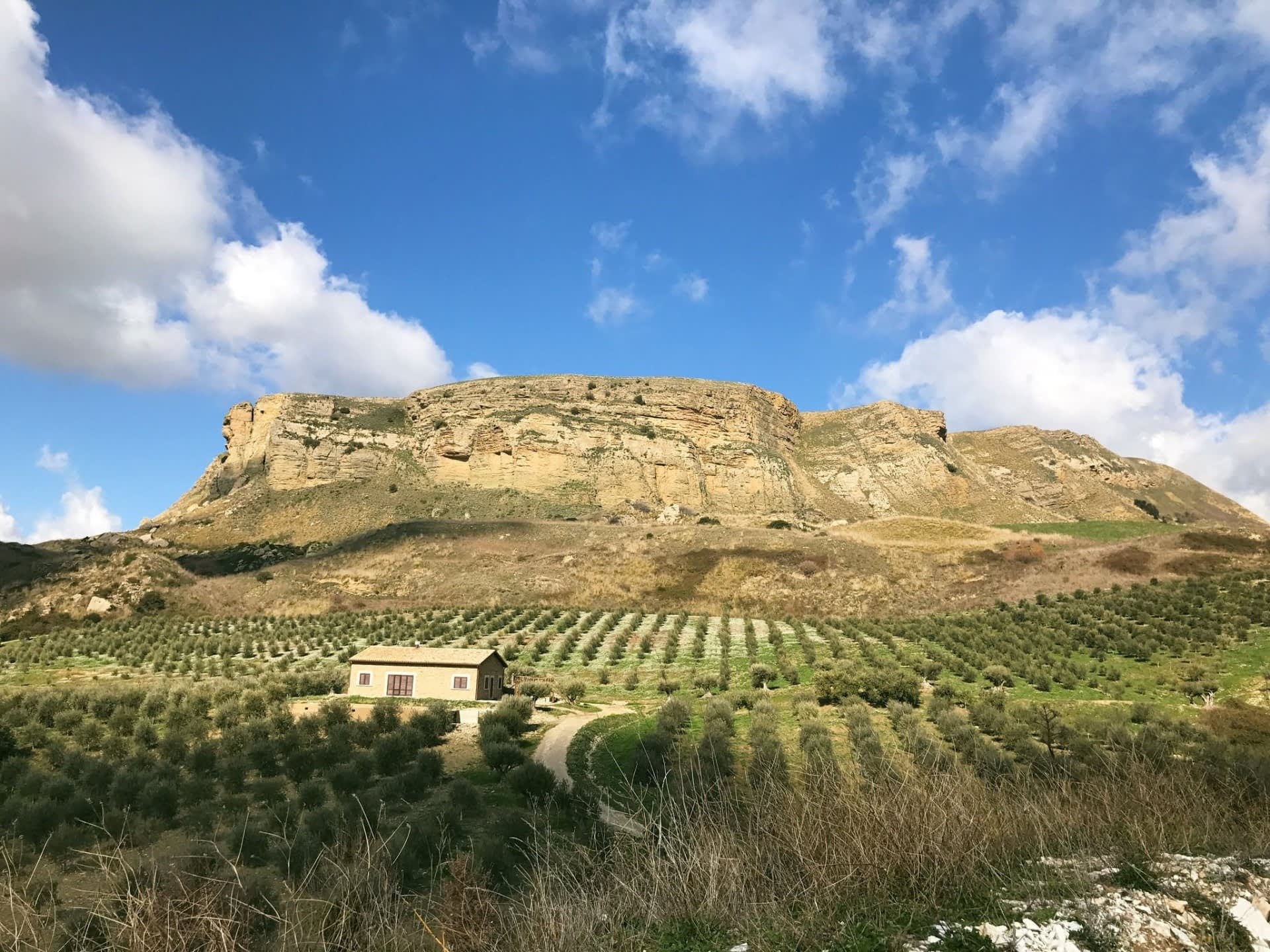
Furtuna Estate
“It comes from our research project into preserving ancient olive varieties,” he added. “We are the only ones today growing this cultivar. We have so many cultivars in Sicily that sometimes we risk not seeing how unique they are.”
Bona Furtuna, whose organic groves are located in the hilly heart of western Sicily, earned three Gold Awards at the 2022 NYIOOC from its three entries.
“We are very happy with the awards in New York. It is not the first time we have won Gold Awards there, which is extraordinary considering that Bona Furtuna is a very young company,” Marino said. “For us, New York is a relevant bridge to the American and international markets.”
Steep slopes in the shade of Mount Etna, Europe’s tallest active volcano in eastern Sicily, helped the success of Vincenzo Signorelli Olivicoltore. The producer won a Gold Award in its first entry into competition with a monovarietal.
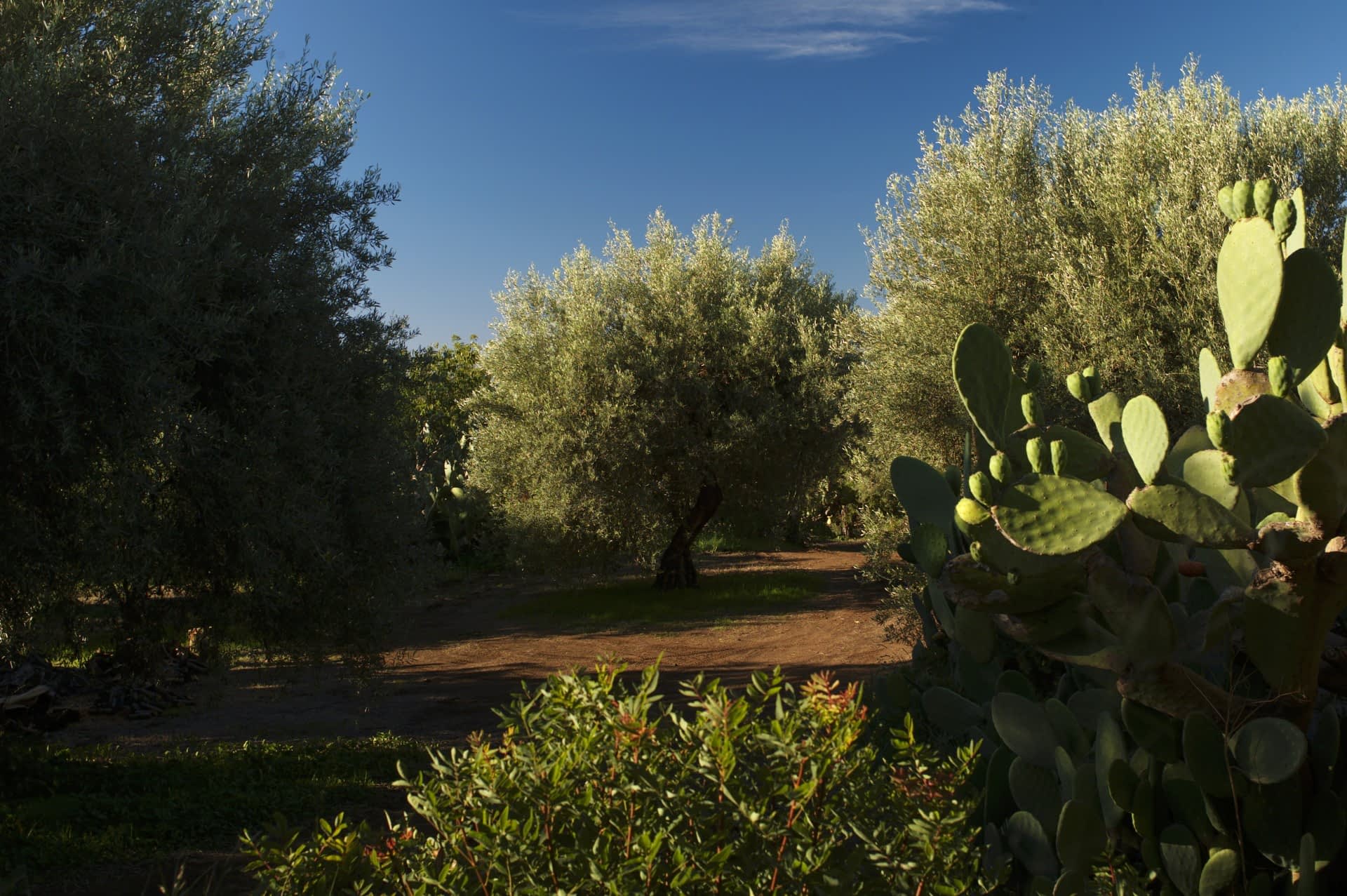
Photo: Vincenzo Signorelli Olivicoltore
Enzo Signorelli, the farm’s owner, told Olive Oil Times what it means to grow olives in a beautiful landscape which is also a very challenging territory.
“We were very happy to learn of the award,” he said.”Such a prestigious win helps us to give value to our extra virgin olive oils. And the competition also contributes to raising consumer awareness.”
“We work with an organic approach, respecting the environment and therefore incurring higher costs,” Signorelli added. “All tasks are done by hand, as using machinery would impact the territory and lead to a loss of biodiversity. Here, we are growers of biodiversity.”
He said that his extra virgin olive oil stands out as a result of using the latest techniques and technologies coupled with the unique environment on the slopes of Mount Etna.
“In the ancient groves on the slopes of the mountain, between 400 and 700 meters above sea level, lichen-covered lava stones protect the olive trees and create natural passages for water when rainfall sets in,” Signorelli said.
In these areas, the farm is also recovering abandoned groves.
“This happened with our monovarietal,” Signorelli said. “In a context of heroic agriculture, with terraces built on lava and unique biodiversity, we do not mold; we just cut grass four times a year as the grass itself is a fertilizer for the soil thanks to the microfauna that it nurtures.”
“Many used to plant field beans in the grove, but we prefer our native leguminous. In addition, we have clover, asparagus, prickly pears, aromatic herbs, recovered almond trees, wild olive trees, pistachios, field herbs and mushrooms,” he added. “Everything communicates with the olive trees, and the scientific results show that our soil is in way better conditions than soil that undergoes traditional treatments.”
Situated in Sciacca, Sicily’s other leading olive oil-producing region, Bono earned three Gold Awards and a Silver Award.
“It is an honor to be named a top extra virgin olive oil producer by the most prestigious competition in the world,”said Salvatore Russo-Tiesi, president and CEO of Bono USA. “This accolade brings great legitimacy to our brand and validates our hard work.
“We are proud of our work as producers,” he added. “The award has profoundly impacted our success in the U.S. market. We are taken more seriously, we are validated immediately, and we have been able to attain distribution thanks to NYIOOC.”
According to Bono, some reasons for the success at the competition lie in the unique territory.
“Our product is made from Sicilian olive varietals,” Russo-Tiesi said. “They are unique and inimitable. The volcanic soil, scirocco winds and the microclimates of Sicily create an olive varietal and, in turn, olive oil that is medium balanced, delicate, and sweet. It is not a bitter, heavy extra virgin olive oil that would be seen as too strong or too bold for the American palate.”
Producers in Sardinia have also earned numerous awards at the 2022 NYIOOC. Among them was Accademia Olearia, which earned a Gold Award and Silver Award.
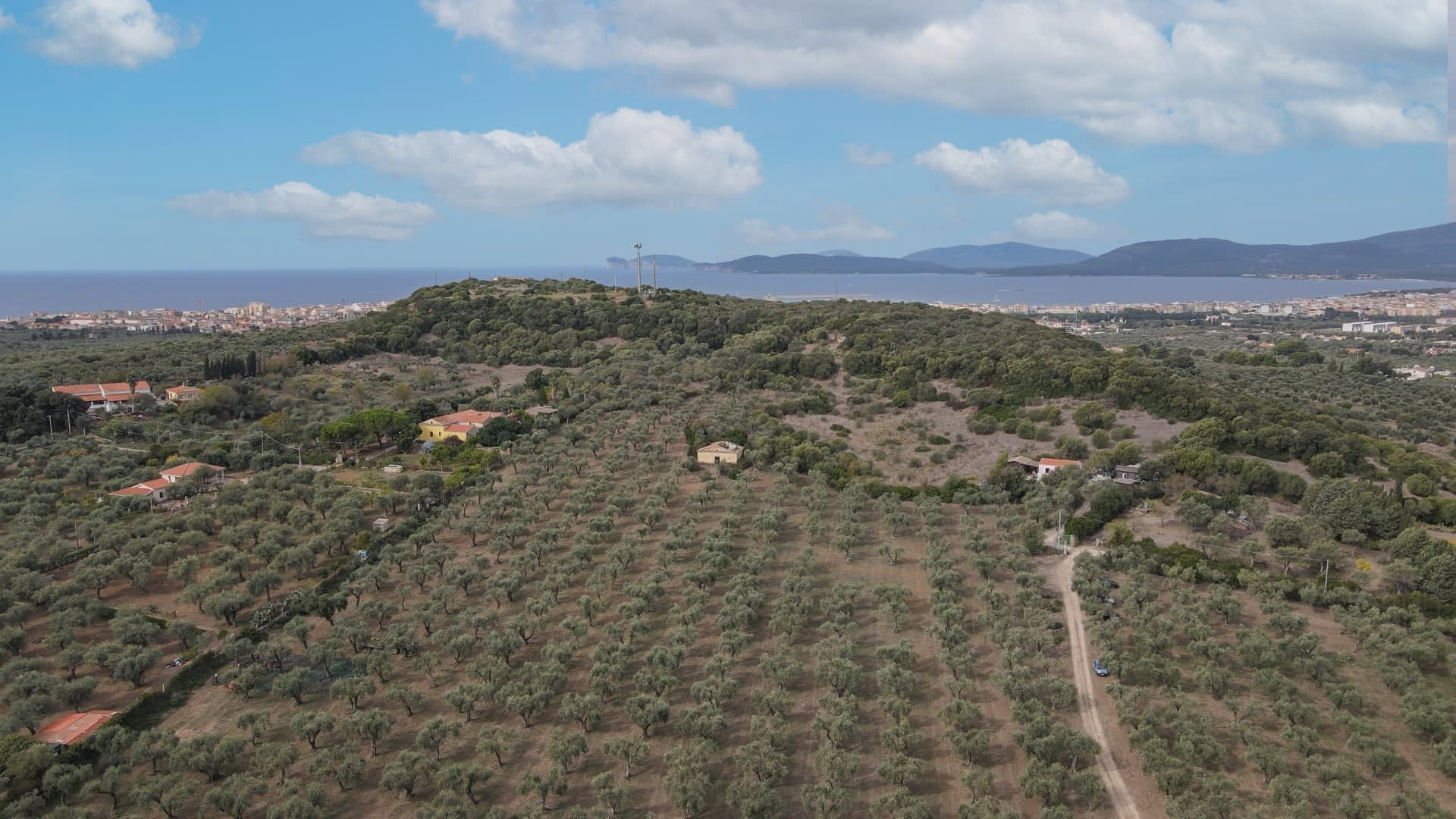
Photo: Accademia Olearia
Located on the coast of western Sardinia, the extra virgin olive oil producer has consistently won awards at the NYIOOC.
“Such awards represent our tribute to this territory, rich in history and tradition, whose passion and feelings we proudly share through our products,” Antonello and Alessandro Fois, co-owners of the company and fourth-generation olive growers, told Olive Oil Times.
Among the reasons that brought the Gran Riserva Giuseppe Fois into the spotlight was the highly selective choice of olive drupes.
“It represents the maximum quality expression of Accademia Olearia products,” the Fois said. “It is produced in limited quantities using only the best olives from specific groves where different native cultivars are grown.”
The result, they explained, “is an olive oil with very high sensory attributes, the aromas of the olive meet with those of the golden apple and tomato leaf, yielding an extra virgin olive oil of great balance between bitter and spicy.”
This year’s unique oils on Sardinia came after a season that did not bring record volumes of olives but ensured a high quality of the drupes.
“The current season will not be remembered as the most abundant ever, given the heatwave we are experiencing, but we still look for a high-quality extra virgin olive oil that will come out of it,” the Fois added.
However, the couple added that it is a challenging period for high-quality producers.
“For sure, our times do not help agriculture. Farmers are pressed by a continuous rise in the prices of raw materials, energy costs, machinery and field operation,” the Fois concluded. “These are the most relevant challenges we face in our quest for extremely high quality.”
Share this article



